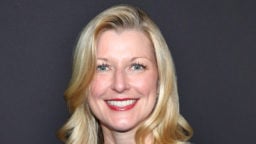ASCAP, the American Society of Composers, Authors and Publishers, has become the first PRO in the world to announce annual revenues of more than US $1 billion, up 6% year-on-year.
In calendar year 2014, ASCAP also delivered record-breaking royalty distributions of over $883 million to its songwriter, composer and music publisher members, up $32.3 million, or 4%, on 2013.
The number of musical performances captured, identified, matched and processed for payment by ASCAP doubled from 250 billion in 2013 to 500 billion in 2014. ASCAP operates on a not-for-profit basis, distributing all revenues after deducting its operating expenses, currently at a low overhead rate of 12.6%.
ASCAP President Paul Williams commented: “Our songwriter and composer members depend on ASCAP to earn a living and it is our job to advocate and protect their rights across all media. We maintain a strong presence in Washington, D.C. to ensure they are fairly compensated for their creative work, which is the engine driving the entire industry.
“I am very gratified that we were able to deliver such strong financial results for the talented women and men who call ASCAP home. From our point of view, if we can ensure fair market rates for our members by working with the Department of Justice to modernize our outdated Consent Decree, then everyone wins – music creators, licensees and fans — because the value of collective licensing is that strong.”
“ASCAP had an incredibly successful 2014. We worked extremely hard and continually innovated in order to maximize the financial opportunities for our members in the face of an evolving and increasingly competitive global landscape. We implemented new revenue growth strategies and productivity improvement initiatives in order to deliver the best collective licensing value proposition at the lowest possible cost for all stakeholders,” said ASCAP CEO Elizabeth Matthews.
“Our 2014 financial results clearly demonstrate that collective licensing is the most efficient licensing model available to creators and music licensees alike. The collective can accommodate big data growth of extreme scale at the lowest cost while also providing access to a broad, diverse and high quality repertory of music.”
ASCAP represents 10 million works by more than 525,000 music creators including the musical compositions of 2015 Grammy winners Beyoncé, Beck, Jay Z, St. Vincent, Kendrick Lamar, Max Martin and Rubén Blades as well as contemporary hitmakers such as Katy Perry, Iggy Azalea, Romeo Santos, Jessie J, Aloe Blacc, Sia, Meghan Trainor, Lady Antebellum, Lorde, Dr. Luke, Diplo, Calvin Harris and Brandy Clark.
Other highlights of the organisation’s 2014 include:
- ASCAP grew domestic revenue across nearly all platforms in 2014, for an overall increase of $57 million, or 6%. Revenue from foreign societies was up 4.9%.
- ASCAP expanded its surveys of the most significant digital streaming services in 2014, including Apple iRadio, Pandora, Rhapsody and Spotify. The number of writers paid for performances on these services increased by 9X from 2013. ASCAP identified more than 1.3 million unique works played on those services, 30 times more than in 2013.
- ASCAP Song Camps were the birthplace for the Miranda Lambert ft. Carrie Underwood single “Something Bad,” by Chris DeStefano, Brett James and Priscilla Renea, which hit #1 on the country charts; Jacob Latimore’s first 2014 single “Heartbreak Heard Round the World,” written by Johntá Austin, Shea Taylor and Martin Johnson; and five songs recorded by La Original Banda El Limón written at the ASCAP Song Camp songs in Mazatlán, Mexico.
- Over 30% more live shows were processed through ASCAP’s OnStage program, which gives ASCAP members a simple way to submit set lists and receive royalties for shows in ASCAP-licensed venues.
- Over 40,000 new members joined ASCAP in 2014, a 33% increase as compared to 2013.
Music Business Worldwide




